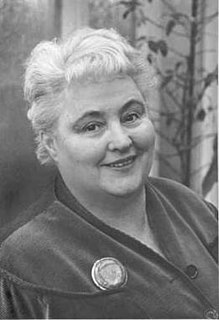A Quote by Joyce Meyer
The three most harmful negative emotions are anger, guilt, and fear. And anger is number one. It is also the strongest and most dangerous of all passions.
Related Quotes
There are only two emotions: love and fear. All positive emotions come from love, all negative emotions from fear. From love flows happiness, contentment, peace, and joy. From fear comes anger, hate, anxiety and guilt. It's true that there are only two primary emotions, love and fear. But it's more accurate to say that there is only love or fear, for we cannot feel these two emotions together, at exactly the same time. They're opposites. If we're in fear, we are not in a place of love. When we're in a place of love, we cannot be in a place of fear.
When the anger is intense, the person with Asperger's syndrome may be in a 'blind rage' and unable to see the signals indicating that it would be appropriate to stop. Feelings of anger can also be in response in situations where we would expect other emotions. I have noted that sadness may be expressed as anger.
Mentally, physically and emotionally we are the same.
We each have the potential to good and bad and to be overcome by disturbing emotions such as anger, fear, hatred, suspicion and greed. These emotions can be the cause of many problems.
On the other hand if you cultivate loving kindness, compassion and concern for others, there will be no room for anger, hatred and jealousy.
There is nothing wrong with anger. Anger is a beautiful emotion, as valid and rich as joy or laughter. But you have been taught to repress your anger. Your anger has been condemned. If anger is unexpressed, it will slowly poison you. The key is to know how to express your anger. Do not throw it out onto any one. No one is responsible for your anger. Simply express your anger. Beat up a cushion. Go for a run. Express your anger to a tree. Dance your anger. Enjoy it.
Anger cannot be overcome by anger. If someone is angry with you, and you show anger in return, the result is a disaster. On the other hand, if you control your anger and show its opposite - love, compassion, tolerance and patience - not only will you remain peaceful, but the other person's anger will also diminish.
People are often very frightened of their anger. They feel it will cause them to do something harmful. If you have this fear, create a safe situation where you can express your anger, alone or with a trusted therapist or friend. Allow yourself to talk angrily, shout, hit pillows, whatever you feel like. Once you've done this in a safe environment, you will have released some of the charge, and you can look underneath the anger to find what you need to do to take better care of yourself. Like any emotion, anger is a valuable tool, teaching us who we are and how we feel.
Johnny Depp's performance is quite remarkable. Sweeney's desire for revenge and the simmering anger and hurt that he feels carry the story forward, and Johnny finds the most remarkable variety within that narrow set of emotions. The intensity is at a boil all the time and he never drops it. It's real anger.
Anger can offer a sense of indignity to replace a sense of shame, and offer a voice-raised above others-which can finally be heard. Those voices are most effective when they are raised in unison, when they have mercy as well as anger behind them, and when, instead of roaring at the anger of old pain, they sing about the glorious possibilities of a future where anger has a smaller house than hope.
I think this is one of the problems that we're having in Indigenous affairs. Why we're not confronting the issues that are going to resolve it, the anger and the guilt. The anger on the Aboriginal side; the guilt on the non - Aboriginal side. We have got to deal with that, move on and start doing real work.

































